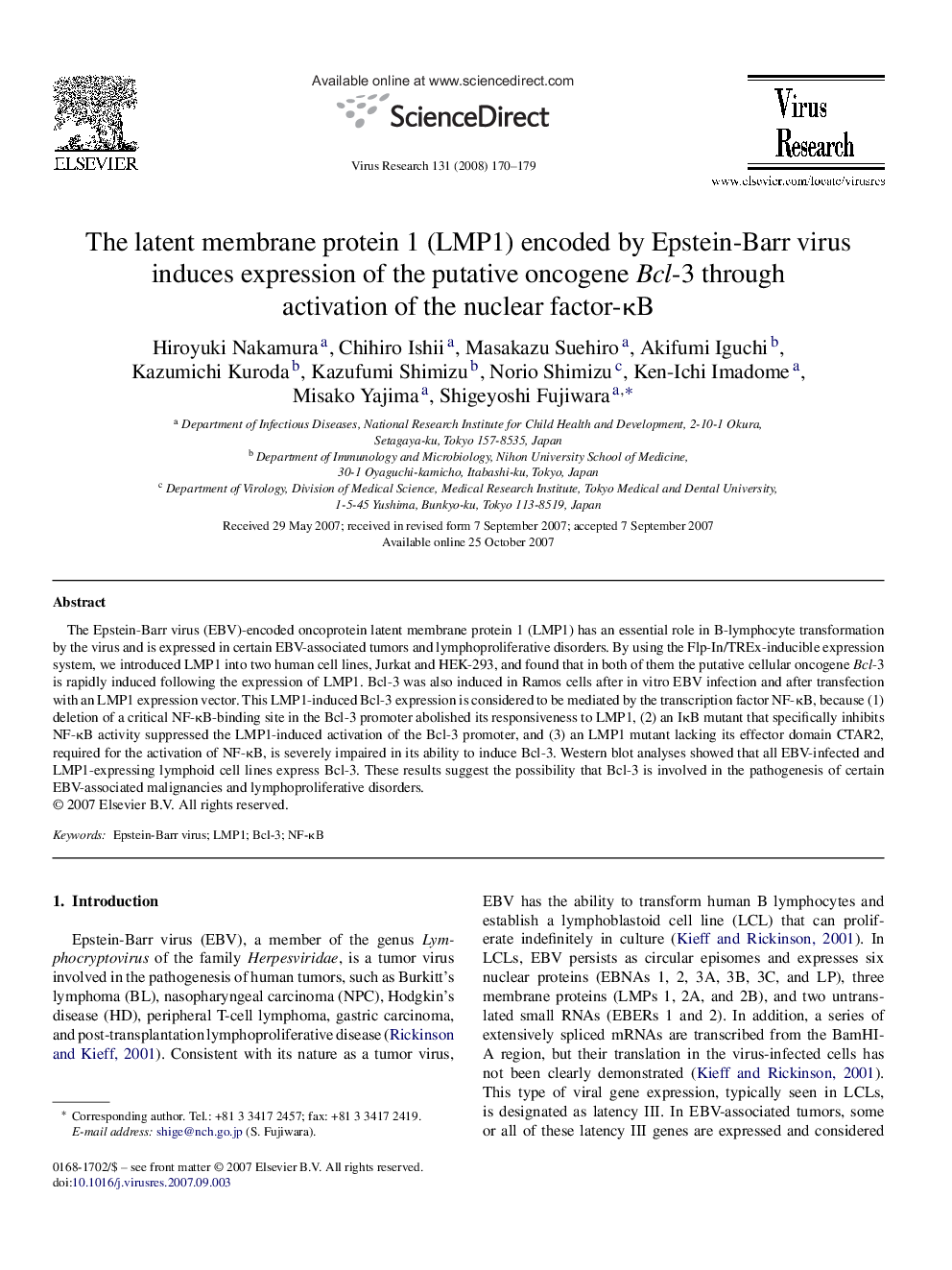| Article ID | Journal | Published Year | Pages | File Type |
|---|---|---|---|---|
| 6143589 | Virus Research | 2008 | 10 Pages |
Abstract
The Epstein-Barr virus (EBV)-encoded oncoprotein latent membrane protein 1 (LMP1) has an essential role in B-lymphocyte transformation by the virus and is expressed in certain EBV-associated tumors and lymphoproliferative disorders. By using the Flp-In/TREx-inducible expression system, we introduced LMP1 into two human cell lines, Jurkat and HEK-293, and found that in both of them the putative cellular oncogene Bcl-3 is rapidly induced following the expression of LMP1. Bcl-3 was also induced in Ramos cells after in vitro EBV infection and after transfection with an LMP1 expression vector. This LMP1-induced Bcl-3 expression is considered to be mediated by the transcription factor NF-κB, because (1) deletion of a critical NF-κB-binding site in the Bcl-3 promoter abolished its responsiveness to LMP1, (2) an IκB mutant that specifically inhibits NF-κB activity suppressed the LMP1-induced activation of the Bcl-3 promoter, and (3) an LMP1 mutant lacking its effector domain CTAR2, required for the activation of NF-κB, is severely impaired in its ability to induce Bcl-3. Western blot analyses showed that all EBV-infected and LMP1-expressing lymphoid cell lines express Bcl-3. These results suggest the possibility that Bcl-3 is involved in the pathogenesis of certain EBV-associated malignancies and lymphoproliferative disorders.
Keywords
Related Topics
Life Sciences
Immunology and Microbiology
Virology
Authors
Hiroyuki Nakamura, Chihiro Ishii, Masakazu Suehiro, Akifumi Iguchi, Kazumichi Kuroda, Kazufumi Shimizu, Norio Shimizu, Ken-Ichi Imadome, Misako Yajima, Shigeyoshi Fujiwara,
